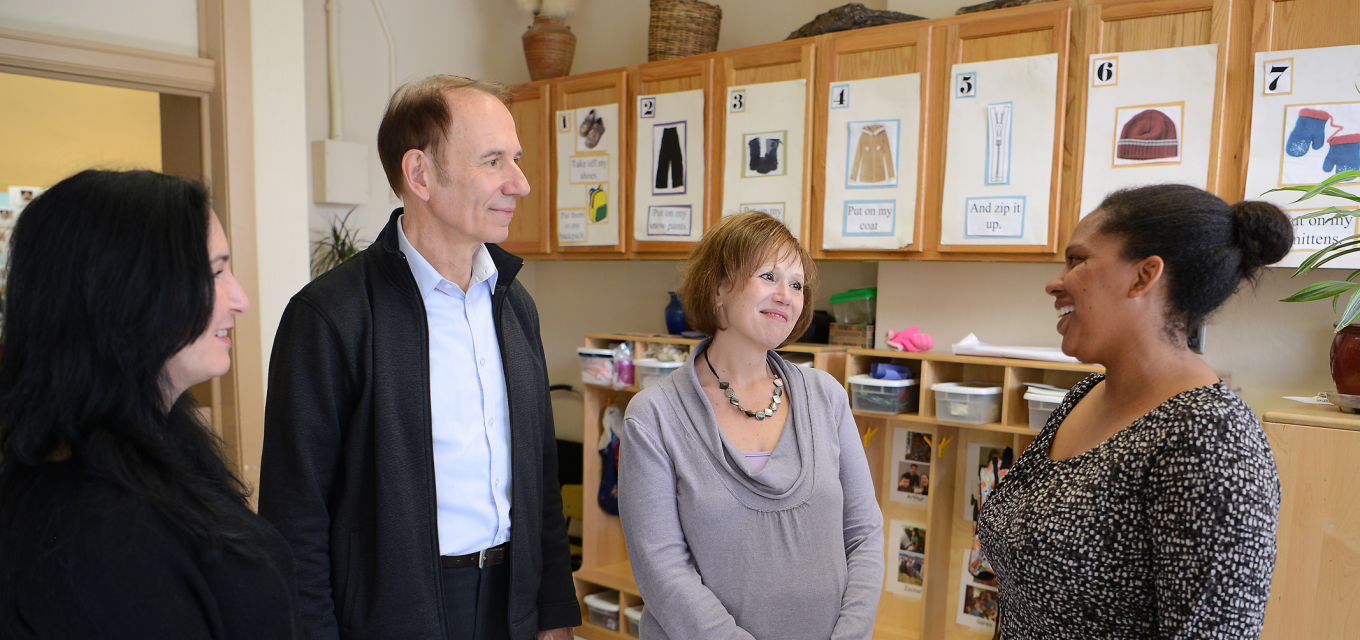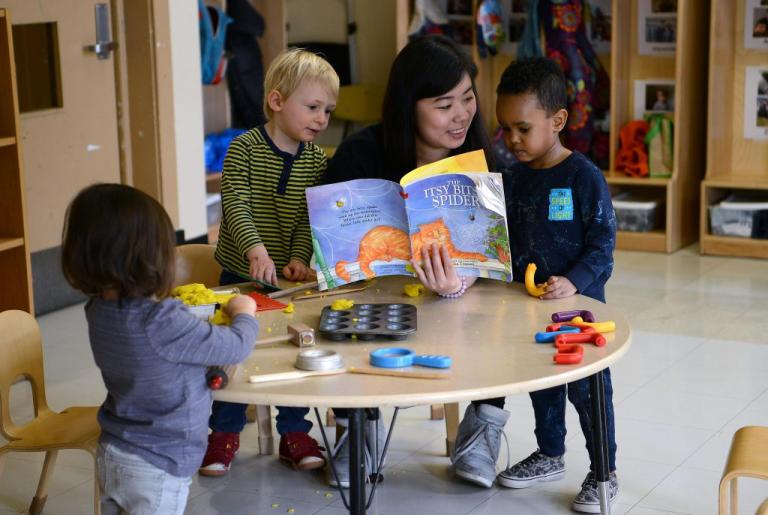News

A new tool for early childhood professionals
New self-study modules for reflective supervision.
The Reflective Practice Center at the Center for Early Education and Development (CEED) has just released nine new reflective supervision self-study modules. Created with working professionals in mind, each module delivers evidence-based content in a practical, three-hour format. Each module provides focused learning and companion resources that meet the professional development needs of people who work with or on behalf of young children and families.
The modules are designed for practitioners in any early childhood field where reflective supervision is provided and are suitable for people who provide reflective support as a supervisor or a consultant. Many are appropriate for managers who make decisions about staff participation in reflective supervision.
“This suite of modules is appropriate for practitioners in any early childhood-related discipline,” says Associate Director of Professional Development Deborah Ottman. “Many of the modules are also suitable for people in leadership positions in these fields. We have options that are equally useful to a child life practitioner, a child care center director, or a court-appointed guardian ad litem, for example.”
The origin of the modules can be directly traced to about four years ago when CEED was the recipient of a generous gift from the Lynne & Andrew Redleaf Foundation for the creation of the Reflective Practice Center.
“They gave it to us with the intent of promoting and growing this practice, which is currently considered one of the gold standards for professional development,” Ottman says.
“Any sector that is touching the lives of little ones and their families can benefit from this practice.”
Reflective supervision entails regularly scheduled meetings between professionals and supervisors or consultants where the professionals talk about their work challenges. “For people participating in this practice, it provides them a safe space in which to talk about their experiences and the feelings that are brought up in doing this work,” Ottman says. “It’s a place to be able to safely and securely take out these feelings and sometimes the implicit bias and judgment we have and work through them. It also helps professionals avoid burnout because this is such a stressful role they are in.”
Ottman says one interesting thing about reflective supervision is its ubiquitousness. “It’s used in home visiting, intervention, social work, child protection, and public health,” she says. “Any sector that is touching the lives of little ones and their families can benefit from this practice.”
Reflective supervision is growing, but it is still a relatively new practice, and the supply of training and support materials is limited. That’s where the modules come in. “We knew that we wanted to create professional development offerings that would promote the use of reflective supervision and build practitioners’ skills,” Ottman says. “Unlike other professional development tools, reflective supervision is a practice one never reaches an endpoint with or mastery of. There’s always a way to extend and deepen one’s practice.”

Equally important was making the modules accessible for busy professionals. That’s why the Reflective Practice Center team chose an on-demand format and created options that suit different levels of knowledge and experience. “It needed to be flexible enough so that no matter who is using it, it will speak to them and resonate with them from their professional sector,” Ottman says. “Also, we wanted to make this professional, we wanted to make it rigorous and high quality, but not so academic that it was unappealing. It was important to us to find a good balance.”
There is currently a suite of nine modules and the center is in the process of creating three more. “We will continue to add to and expand as we uncover new needs and as the field continues to grow,” Ottman says.
The current modules are:
- Wondering with purpose: Reflection in any setting
- Why you matter: Professional use of self
- Tackling the elephants in the room 1: exploring issues of cultural humility and privilege
- Tackling the elephants in the room 2: unpacking implicit bias and moving from equity to justice
- A guide for the guide: The “how” of reflective supervision
- The plot thickens! Reflective supervision for groups
- The domino effect: Parallel process in reflective supervision
- Holding the baby in mind—When we are dysregulated ourselves
- Hand in hand: Joining administrative, clinical, and reflective supervision roles
All the modules were created by experts from CEED and from around the United States. All modules are aligned with the Alliance for the Advancement of Infant Mental Health’s competency areas and meet Endorsement® professional development requirements.
The cost is $85 per individual registration for each module. Group rates are also available. Participants who complete a module receive a Certificate of Completion for three clock hours.
“We’re delighted to offer a new professional development option for practitioners and supervisors in fields such as social work, healthcare, and early education,” says Ann Bailey, director of CEED. “We know that these professionals are incredibly busy. They want to keep up with the latest research and practice, but they want to acquire that knowledge in efficient, concentrated doses. That’s what we have tried to do with the self-study modules. These were designed so that in one or two sittings, you can absorb new information that you can put into practice the same day.”
Noted mental health provider Michelle Dineen, who created one of the modules, says reflective supervision is powerful, even more so than she first realized. “The experience of learning to reflect, be mindful, be meditative was life-changing,” she says. “I had no idea what an impact these practices would have on my body and mind.”
Photos courtesy of CEED
Learn more at ceed.umn.edu/professional-development/reflective-supervision-consultation-self-study-modules
-Kevin Moe